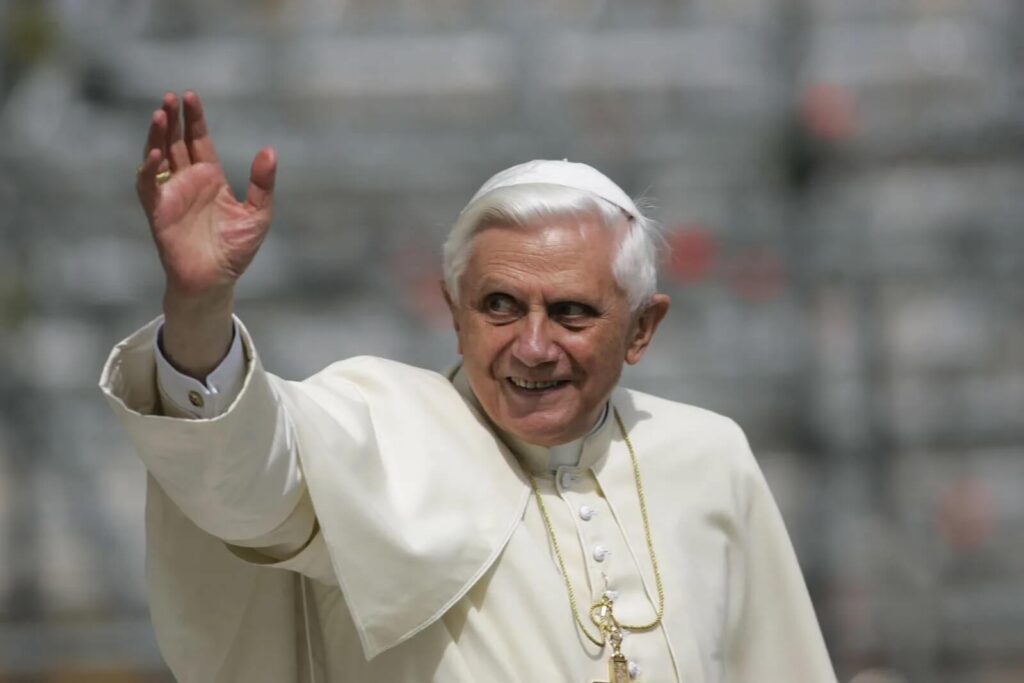Grace Holland ’25 | Kate Dente ’25
On December 31, 2022, Pope Benedict XVI, previously known as Joseph Aloisius Ratzinger, passed away at the age of 95. He died at the Mater Ecclesiae Monastery in Vatican City due to health complications. From 2005 to 2013, Pope Benedict served as the 265th head of the Roman Catholic Church and was succeeded by Pope Francis, the current bishop of Rome and sovereign of the Vatican City State.
Pope Benedict’s passing spurred mournful reactions throughout the EA community. Minah Cho ’25 believes that Pope Benedict’s death “is a loss for the church. It is upsetting to have an impactful figure pass, but his death reminds us of the doors he opened for the future of the Catholic church.”
The former Pope made several impacts on the Catholic Church. During his time as Pope, he led the Vatican’s chief doctrine and discipline office, the Congregation for the Doctrine of the Faith. As a result, his principles were spread throughout the world. Father Tim Gavin, Head Chaplain, explains that Pope Benedict “was a conservative theologian, but he also brought some stability to the papacy, especially after John Paul II died.”
Throughout his tenure in the Vatican, Pope Benedict’s deteriorating health was often in question, which eventually resulted in his unprecedented resignation in 2013. However, a report released in 2022 revealed that he was involved in the coverup of several sexual abuse scandals, causing many to question whether the former Pope retired due to health complications or his involvement in these scandals.
While some deem Pope Benedict’s resignation as selfish, Gavin views the resignation as selfless, asserting that “it showed a lot of humility on his part to resign and step aside and say I just cannot do the job anymore and I’m going to move out of the way so someone else can.”

Photo courtesy of britannica.com
Jake Virbitsky ’25 shares a different perspective on Pope Benedict’s resignation. He says, “[Pope Benedict] resigned not only due to health reasons, but also because he was not in the proper condition to travel around to deliver the Catholic message.” On the other hand, Kevin Groenhuysen ‘24 believes that the former Pope’s resignation “was an inadvertent result of his involvement in the scandals. I think that the health complications played a role in his resignation, but the abuse scandals probably also affected his moral consciousness and ability to do the job.”
Despite differing opinions on Pope Benedict’s motivation to resign, his resignation certainly challenged the expectation that the papal post should be held until death. Gavin elaborates on this expectation, stating, “you really have to put your pride aside, your ego aside and understand that retiring from the papacy is more a sign of courage as opposed to a sign of weakness.” Regardless of his early resignation, Pope Benedict reigned supreme over the Roman Catholic Church for almost a decade, and is revered by many. However, the recent report on abuse scandals potentially suggest an alternative reason for his resignation.